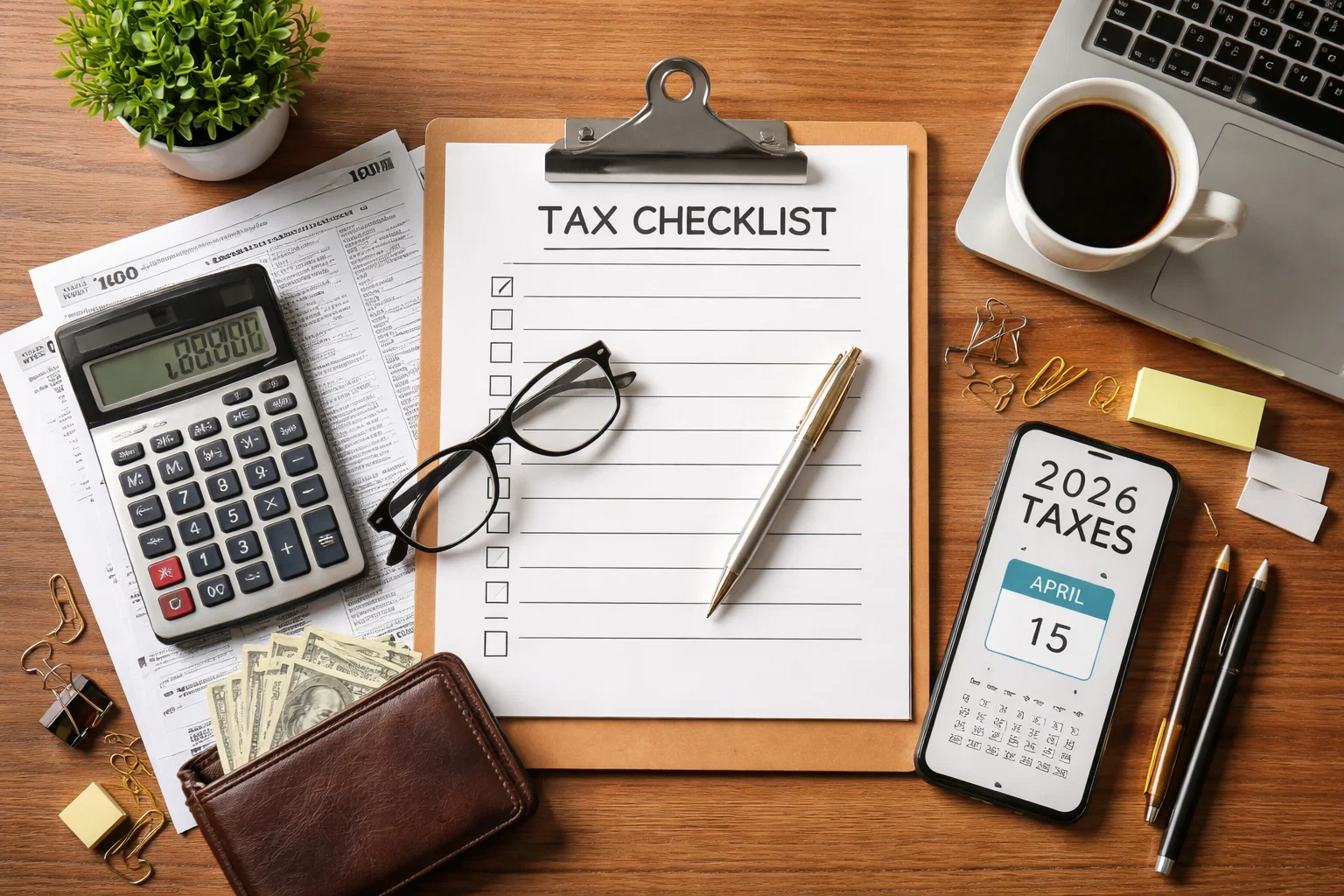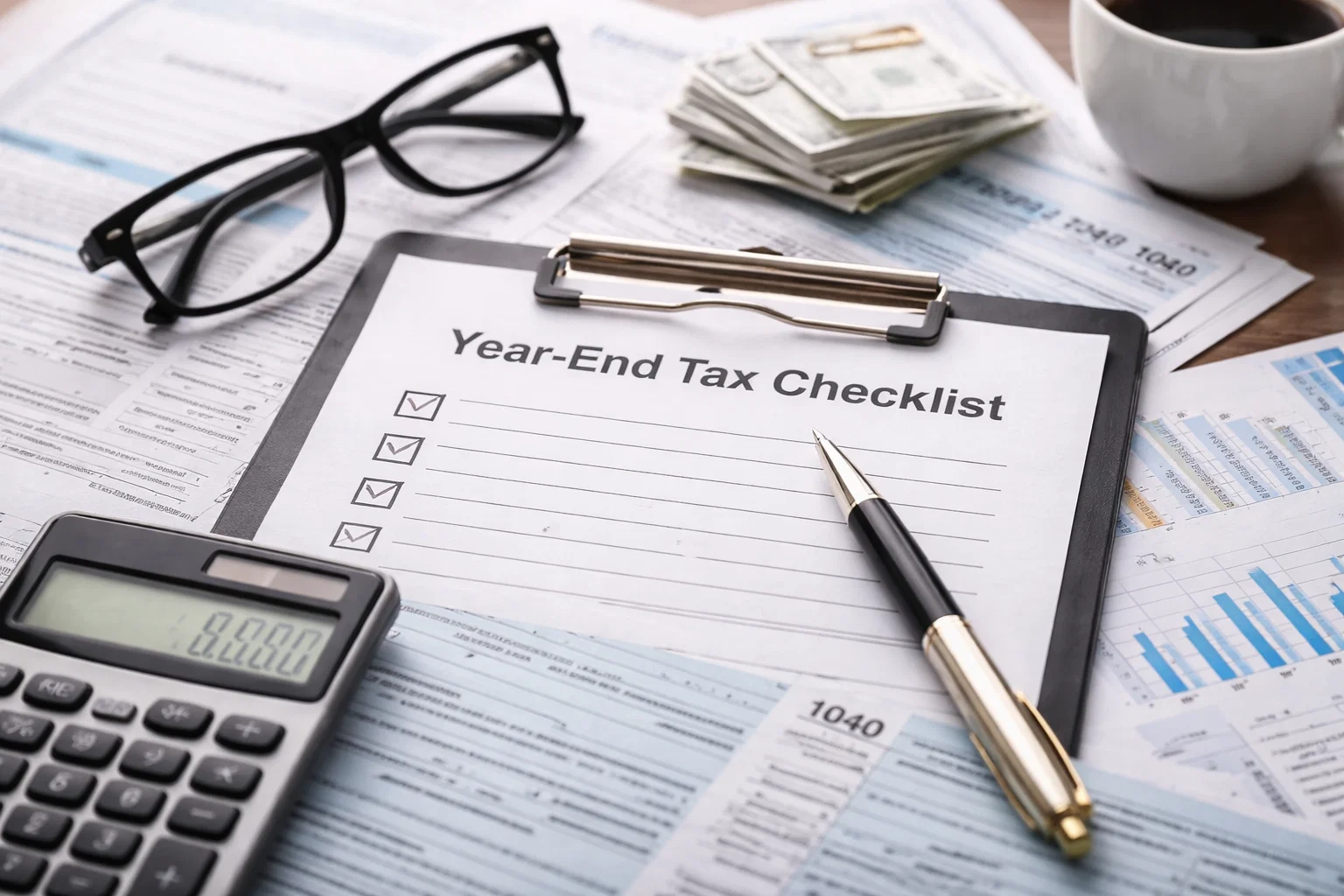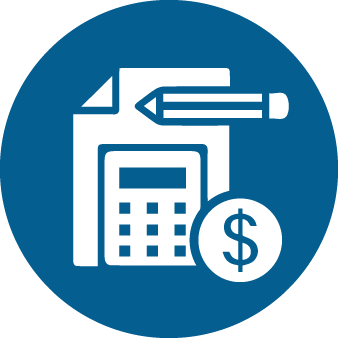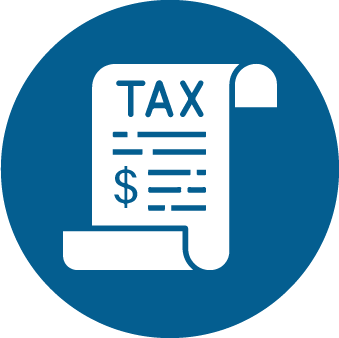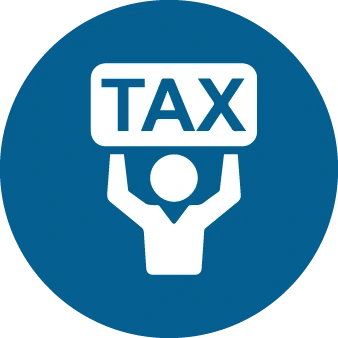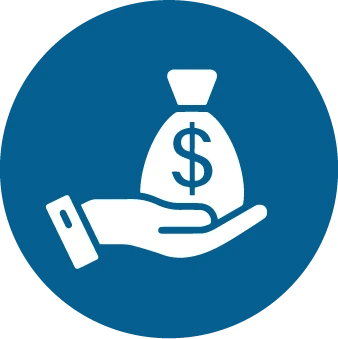As a small business owner in New Jersey, you wear many hats. From managing daily operations to strategizing for growth, your plate is always full. The last thing you need is the added burden of navigating complex debt collection laws. Yet, ignoring these regulations can lead to significant financial distress, impacting your cash flow, credit, and even your peace of mind.
Imagine the relief of knowing you're fully prepared, that your business is shielded from aggressive collection tactics, and that you understand the tax consequences of debt settlements before they become a problem. This comprehensive guide is designed to empower New Jersey small business owners like you with the essential knowledge to confidently manage debt collection scenarios.
At Precision Accounting intl, we understand the unique challenges small businesses face. Our expertise extends beyond traditional accounting; we provide strategic financial guidance to help you navigate complex situations like debt collection.
Decoding NJ Debt Collection Laws: What Every Small Business Owner Must Know
Navigating the legal landscape of debt collection in New Jersey can be daunting. However, understanding the key rules and regulations is the first step toward protecting your business. While New Jersey doesn't have a separate set of debt collection laws for businesses, the federal Fair Debt Collection Practices Act (FDCPA) provides a strong framework of protection. It's crucial to remember that the FDCPA primarily applies to third-party debt collectors, not the original creditors.
NJ Rules Affecting Small Businesses
Here are some of the most important regulations that every New Jersey small business owner should be aware of:
Statute of Limitations
In New Jersey, there's a time limit for how long a creditor can sue you for a debt. For most written contracts, this period is six years. For sales contracts, it's four years. Understanding this is vital for financial planning, as it helps you determine which debts are legally enforceable.
Prohibited Collector Tactics
The FDCPA strictly prohibits debt collectors from using harassing, abusive, or deceptive practices. This includes making false threats, using obscene language, or calling at unreasonable hours. Documenting any such violations is crucial if you need to dispute the debt or take legal action.
Wage Garnishment Limits
If a creditor obtains a court judgment against you, they may be able to garnish your wages. However, New Jersey law limits the amount that can be garnished to 10-25% of your disposable income. For LLCs with employees, this has significant payroll near you in NJ implications that need to be managed carefully.
The Accounting Angle: A CPA's Perspective
From a financial standpoint, it's essential to be proactive when dealing with debt collection:
If a collector sues your business, it's crucial to update your profit and loss (P&L) statement to account for potential judgments. This ensures your financial records are accurate and reflect the potential liability.
Furthermore, New Jersey law provides certain protections for business assets:
New Jersey allows for 'execution exemptions,' which can protect essential business assets from being seized by creditors. Understanding these exemptions is key to safeguarding your business's future.
Tax & Accounting Consequences of Debt Collections
Debt collection isn't just a legal issue; it has significant tax and accounting implications for your small business. Understanding these consequences is vital for maintaining financial health and avoiding unexpected tax burdens. Many small businesses benefit from comprehensive tax relief service near nj to help navigate these complex situations.
How Debt Settlements Affect Your NJ Small Business Taxes
When a debt is settled for less than the full amount owed, the canceled portion of the debt can be considered taxable income by the IRS. This is known as Canceled Debt Income (CDI). However, there are exceptions and strategies to minimize this impact:
Is Canceled Debt Taxable?
Generally, if a debt is canceled, you must include the canceled amount in your gross income. However, if you are insolvent (your liabilities exceed your assets) immediately before the debt is canceled, you may be able to exclude the canceled debt from income. You would typically report this on IRS Form 982, Reduction of Tax Attributes Due to Discharge of Indebtedness, and may receive a Form 1099-C, Cancellation of Debt, from the creditor.
Writing Off Bad Debt
For businesses, writing off bad debt depends on your accounting method. If you use the accrual method, you can deduct business bad debts when they become worthless. This means you previously included the amount in income. If you use the cash method, you generally cannot deduct bad debts because you haven't included the amount in income. The impact of bad debt write-offs can be seen on your Schedule C if you are a sole proprietor.
Negotiating Settlements
When negotiating debt settlements, it's crucial to consider the tax implications. Structuring payments to minimize the 1099-C income can be a complex process that often requires expert financial advice. For instance, a creditor might agree to a payment plan rather than a lump-sum settlement, which could spread out any potential CDI over multiple tax years.
Should You Write Off or Settle? (NJ Tax Implications)
| Scenario | Tax Implication (General) | Accounting Method Consideration | CPA Advice (NJ Specific) |
|---|---|---|---|
| Debt Canceled (Insolvent) | Not taxable (Form 982) | N/A | Document insolvency thoroughly; consult CPA for accurate Form 982 filing. |
| Debt Canceled (Solvent) | Taxable (1099-C) | N/A | Explore payment plans to spread out CDI; consider impact on current year's taxable income. |
| Writing Off Bad Debt (Accrual) | Deductible | Accrual Method Required | Ensure debt is truly worthless; maintain clear documentation for audit purposes. |
| Writing Off Bad Debt (Cash) | Not deductible | Cash Method | Focus on preventing bad debt through better credit policies. |
| Negotiated Settlement | Partial CDI (if applicable) | N/A | Work with your CPA to structure settlements that minimize tax burden. |
Protecting Your Business Credit & Cash Flow: Smart Financial Moves
Beyond the immediate legal and tax implications, debt collection can significantly impact your business credit and cash flow. Proactive management in these areas is crucial for long-term stability and growth.
How Collections Appear on Business Credit Reports
Just like personal credit, your business has a credit report that reflects its financial health. When a debt goes to collections, it can negatively affect your business credit score, making it harder to secure loans, lines of credit, or favorable terms with suppliers in the future. Key business credit reporting agencies include:
Dun & Bradstreet
Often considered the most influential business credit bureau, Dun & Bradstreet provides a PAYDEX score, which indicates how promptly your business pays its bills. Collections can severely lower this score.
Experian Commercial
Similar to its consumer counterpart, Experian Commercial tracks business payment history, including any collection accounts. A low score here can signal risk to potential lenders and partners.
Understanding how these agencies report collections is the first step in mitigating their impact. Regularly monitoring your business credit report allows you to identify discrepancies and address issues promptly.
Pay-for-Delete Negotiation Tactics
One tactic some businesses attempt is a pay-for-delete negotiation. This involves offering to pay a collection agency a portion or all of the debt in exchange for them agreeing to remove the negative entry from your credit report. While not all collection agencies agree to this, it can be a viable option for businesses looking to repair their credit quickly. If pursuing this, ensure you get the agreement in writing before making any payment.
Cash Flow Survival Tips
Maintaining healthy cash flow is paramount, especially when dealing with debt. Here are some strategies to help your New Jersey small business survive and thrive:
Prioritizing Debts
Not all debts are created equal. Prioritize paying secured debts (like mortgages or equipment loans) to avoid asset seizure. Next, focus on debts with high interest rates. When it comes to payroll in NJ, it's always a top priority to ensure your employees are paid on time, as this directly impacts morale and legal compliance.
Negotiate Payment Plans
Many creditors are willing to work with you if you communicate openly. Propose a realistic payment plan that aligns with your current cash flow.
Invoice Promptly and Follow Up
Ensure your own invoicing process is efficient and that you follow up on overdue invoices diligently. Strong accounts receivable management can prevent your business from becoming the one with outstanding debts. Professional bookkeeping services in New Jersey can help streamline this process and maintain accurate financial records.
Small Business CTA: Download Our Free NJ Debt Settlement Tracker
Managing debt can feel overwhelming, but you don't have to do it alone. To help you stay organized and on top of your financial obligations, Our NJ CPAs offers a free NJ Debt Settlement Tracker. This invaluable tool allows you to log 1099-C forms, track payments, and monitor the credit impact of your debt settlements. Take control of your financial future today!
NJ-Specific Scenarios for Small Businesses: Real-World Debt Collection Challenges
New Jersey businesses face unique challenges and protections when it comes to debt collection. Understanding these specific scenarios can help you better prepare and react to potential issues.
Can Collectors Seize My LLC Bank Account?
For many small business owners, especially those operating as a Limited Liability Company (LLC), a common concern is whether personal or business bank accounts can be seized. In New Jersey, LLCs generally offer charging order protections. This means that a creditor with a judgment against an LLC member typically cannot seize the LLC's assets or bank accounts directly. Instead, they can only obtain a charging order, which entitles them to the member's share of the LLC's distributions. This protection helps shield the business itself from a member's personal debts. However, it's crucial to maintain proper corporate formalities to ensure these protections hold up in court. Can the state of NJ take money from your bank account is a common concern that business owners should understand.
Freelancer vs. Incorporated Debt Liability
The legal structure of your business significantly impacts your personal liability for business debts:
Sole Proprietors
If you operate as a sole proprietorship, there is no legal distinction between you and your business. This means your personal assets (like your home or personal bank accounts) are generally at higher risk if your business incurs debt and cannot pay it. Creditors can pursue your personal assets to satisfy business debts.
Incorporated Businesses (LLC, S-Corp, C-Corp)
These structures provide a legal separation between the business and its owners. In most cases, the owners are not personally liable for the business's debts. This is known as limited liability. While this offers significant protection, it's not absolute. Courts can sometimes pierce the corporate veil if proper legal and financial distinctions between the owner and the business are not maintained (e.g., commingling personal and business funds, failing to hold annual meetings).
Understanding your business structure's implications for debt liability is a fundamental aspect of risk management. Do I need an accountant for a very small business? The answer often depends on the complexity of your financial situation and debt obligations.
Industry-Specific Risks
Certain industries in New Jersey carry specific debt collection risks:
Construction Liens
In the construction industry, unpaid invoices can lead to construction liens being placed on property. New Jersey's Construction Lien Law allows contractors, subcontractors, and suppliers to file a lien against real property if they are not paid for their work or materials. This can complicate property sales or refinancing and is a powerful tool for collecting debts in this sector.
Unpaid Invoices in NJ
Across all industries, managing unpaid invoices is a constant battle. New Jersey businesses must be diligent in their invoicing and follow-up processes. While the legal process for collecting on unpaid invoices can be lengthy, understanding the steps—from demand letters to small claims court or civil lawsuits—is essential.
Warning: Don't Ignore Old Debts!
A critical warning for New Jersey business owners: NJ judgments can renew indefinitely—don't ignore old debts! Unlike some states where judgments expire after a certain period, New Jersey allows for judgments to be renewed, potentially extending their enforceability for decades. This means that a judgment against your business, even if it's years old, can still be pursued by creditors if they renew it. Proactive engagement and resolution are always better than hoping a debt will simply disappear. How long can NJ state collect back taxes is another important consideration for business owners facing state tax debt.
Proactive Financial Defense Strategies: How to Prevent NJ Debt Disasters
The best defense against debt collection issues is a strong offense. By implementing proactive financial strategies, New Jersey small businesses can significantly reduce their risk of debt disasters and maintain a healthy financial standing.
Bookkeeping Best Practices
Accurate and up-to-date bookkeeping is the cornerstone of sound financial management. When it comes to debt, this means:
Recording Disputed Debts in QuickBooks
Immediately log any disputed debts, noting the date, amount, reason for dispute, and all communications. This creates a clear audit trail and helps you track potential liabilities. Proper categorization and notation are crucial for both internal financial health checks and external reporting.
Regular Reconciliation
Reconcile your bank accounts and credit card statements regularly to catch discrepancies early. This helps identify potential billing errors or unauthorized charges that could lead to disputes.
Maintain Clear Records
Keep meticulous records of all invoices, payments, contracts, and communications related to your business finances. This documentation is invaluable if you ever need to defend against a debt claim or negotiate a settlement. Virtual service bookkeeping USA can provide professional support for maintaining these critical records.
Using NJ's Consumer Fraud Act
While the federal FDCPA protects consumers, New Jersey also has its own powerful legislation: the Consumer Fraud Act (CFA). Although primarily aimed at consumer protection, certain provisions can be relevant if a debt collector engages in deceptive or unconscionable commercial practices. One key right under both federal and state law is the ability to demand collector validation letters. If a debt collector contacts you, you have the right to request written validation of the debt, including the amount owed, the original creditor, and your right to dispute the debt. This is a critical first step to ensure the debt is legitimate and that the collector has the right to pursue it.
When to Hire a CPA vs. Lawyer
Understanding when to seek professional help is crucial. While their roles can sometimes overlap, CPAs and lawyers serve distinct functions in debt management:
When to Hire a CPA (like Precision Accounting intl CPAs)
A Certified Public Accountant is your go-to for tax relief and financial strategy. CPAs can help you understand the tax implications of debt cancellation (1099-C), advise on writing off bad debt, structure payment plans to minimize tax burdens, and ensure your financial records are in order. They focus on the financial health and compliance aspects of your business. A qualified tax accountant New Jersey can provide essential guidance during debt resolution processes.
When to Hire a Lawyer
A lawyer specializes in litigation needs and legal defense. If you are being sued for a debt, need to sue a debtor, are facing aggressive collection tactics, or require legal interpretation of contracts and statutes, a lawyer is essential. They will represent your legal interests in court and advise on legal strategies.
Often, a collaborative approach between your CPA and lawyer provides the most comprehensive protection for your business. Working with established accounting firms in NJ ensures you have access to experienced professionals who understand the complexities of debt management and tax implications.
Free Consultation: NJ Small Business Debt Health Check
Don't wait for a debt crisis to strike. Proactive financial management is key to long-term business success. Our NJ CPAs offers a Free Consultation: NJ Small Business Debt Health Check. During this session, we'll review your current financial situation, assess potential debt risks, and provide personalized strategies to strengthen your business's financial resilience. Take the first step towards a more secure financial future today!
FAQ
Can a collector contact my customers in NJ?
No. The Fair Debt Collection Practices Act (FDCPA) prohibits debt collectors from contacting third parties, including your customers, about your debt, except in very limited circumstances (e.g., to locate you, but not to discuss the debt itself). This falls under the harassment and privacy protections of the FDCPA. If a collector contacts your customers, they are likely violating federal law.
How long does a business debt stay on my NJ credit report?
Generally, most negative information, including paid and unpaid collection accounts, will remain on your business credit report for seven years from the date of the first delinquency. While a paid debt will still show on your report, paying it off can help improve your credit score faster than leaving it unpaid. It demonstrates your commitment to fulfilling financial obligations.
What's the first thing to do when a collector calls?
The very first thing you should do when a debt collector calls is to request written validation of the debt. This is your right under the FDCPA. Do not discuss the debt or make any promises to pay until you receive this validation. Once you receive it, alert your CPA immediately. They can help you verify the debt, understand its implications, and advise on the best course of action, especially concerning tax and accounting aspects.
Additional considerations for New Jersey business owners include understanding what are the taxes in Clifton, NJ and how to find a tax accountant near me when dealing with complex debt and tax situations. Business owners should also consider year end tax planning for businesses to prevent future debt issues and ensure proper financial management. For growing businesses, part-time CFO services can provide strategic financial oversight to help navigate debt challenges and maintain healthy cash flow.
Secure Your Business Future with Expert NJ CPA Guidance
Navigating the intricate world of debt collection rules and their financial implications can feel like a full-time job in itself. For New Jersey small business owners, understanding these nuances is not just about legal compliance; it's about safeguarding your financial health, protecting your assets, and ensuring the long-term viability of your enterprise. From the statute of limitations to the tax consequences of canceled debt, every detail matters.
We've explored the critical aspects of NJ debt collection rules, the significant tax and accounting impacts, strategies to protect your business credit and cash flow, and specific scenarios unique to the New Jersey business landscape. The overarching takeaway is clear: proactive financial management and informed decision-making are your most powerful tools against potential debt disasters. Don't wait for a crisis to understand your rights and obligations.
Struggling with business debt? Precision Accounting intl help with settlements, taxes, and credit repair. We provide comprehensive business tax services and financial guidance tailored to the unique needs of New Jersey small businesses. Our team also offers retirement planning in NJ to help you secure your financial future beyond immediate debt concerns. Let us be your trusted advisor, helping you transform financial challenges into opportunities for growth and stability. Contact us today to secure your business future.
Related Articles
Services provided for you
Bookkeeping Services in Clifton, NJ
We serve a range of industries and customers, in an organized, friendly, and reliable way.
Business Tax Services
We are in a position to identify tax planning shots that reduce both your current and future tax liabilities.
Individual Tax Services
We gauge our worth by the personal and business successes of our clients and industries.
Payroll Services
For small and large corporations, payroll systems, highly qualified payroll experts support our services. Our primary objective is to provide customized services and highly favorable pricing for you.
Non-Profit Organization Services
Precision Accounting Intl can assist you set up and maintain your non-profit organizations nontaxable standing by handling all the authority reportage for you.
Part-Time CFO Services
If you"re ready enough to be in this role. Our Part-Time CFO Service Package provides you with a knowledgeable financial manager who will work with you to help guide the progress of your business.




